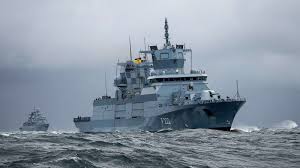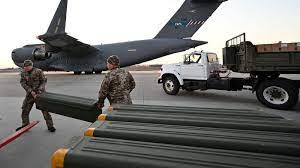Germany’s recent naval transit through the Taiwan Strait, involving the frigate Baden-Württemberg and supply ship Frankfurt am Main, marks the first such passage in over two decades. China has firmly opposed this move, regarding it as a violation of its sovereignty, while Germany and its Western allies insist on the legality of the passage through what they deem international waters. This action, seen by Beijing as a provocative measure, adds another layer of tension to an already delicate situation in the Asia-Pacific region.
Overview of the Taiwan Strait
The Taiwan Strait is a 180-kilometer-wide body of water separating Taiwan from mainland China. It is a critical international waterway that connects the East China Sea and the South China Sea. The strait plays a vital role in global trade, serving as a major shipping route. However, it is also a geopolitical flashpoint. China claims Taiwan as its own territory and, by extension, asserts that the waters surrounding it, including the Taiwan Strait, are under its sovereignty. International law, however, recognizes the strait as international waters, allowing for “innocent passage” under the United Nations Convention on the Law of the Sea (UNCLOS). The U.S. and other Western countries regularly sail through the strait to assert freedom of navigation, a practice that has escalated tensions between China and the West.
China’s Objection to Foreign Warships in the Taiwan Strait
From China’s perspective, military manoeuvres by foreign powers, especially Western nations, near its borders undermine regional stability and embolden pro-independence forces in Taiwan. These actions challenge China’s territorial integrity and are seen as provocations that could escalate into broader conflicts. China’s opposition to foreign warships transiting the Taiwan Strait stems from its view that Taiwan is an integral part of its territory, and foreign naval activity in the area is an affront to its sovereignty.
China’s legal position contrasts with the Western view of the Taiwan Strait as international waters. The increased presence of European and U.S. naval forces is perceived as a direct challenge to China’s claims and a deliberate attempt to counter China’s growing influence in the region. In this context, Germany’s naval transit could further strain relations and contribute to regional instability.
Parallel with Western Complaints about China’s Naval Activities
While China frequently opposes foreign naval activities near its claimed territory, Western powers have also raised concerns about Chinese naval operations near their own territories. For example:
- Australia protested in 2021 when Chinese warships sailed near its Exclusive Economic Zone (EEZ) and along the Australian coast. Although these transits were within the bounds of international law, they sparked diplomatic tensions due to Australia’s imaginary concerns over the growing Chinese military presence in its neighbourhood.
- Japan regularly complains about Chinese naval vessels near the disputed Senkaku/Diaoyu Islands, which both Japan and China claim. The U.S. has supported Japan in challenging these activities.
- The United States has frequently criticized China’s activities in the South China Sea, where Chinese naval operations near U.S. allies are seen as aggressive.
Broader Geopolitical Implications
The situation on the Ukrainian front further complicates this geopolitical landscape. With Ukraine suffering heavy losses in its war with Russia, Western nations, including Germany, may be seeking to project military power in other theatres such as the Asia-Pacific to demonstrate resolve. However, this redirection of focus and resources may signal an overstretch of Western military power, which is already strained by the challenges in Ukraine.
For China, the West’s growing military involvement in both Eastern Europe and the Asia-Pacific region suggests a broader strategy aimed at containing its rise. The failure of Western-backed Ukrainian forces to decisively defeat Russia may foreshadow potential miscalculations in Asia if Western countries continue their provocative military policies. Just as Russia has demonstrated resilience against foreign interventions, China is equally determined to defend its sovereignty and territorial claims, particularly regarding Taiwan.
In this context, Germany’s naval transit through the Taiwan Strait risks heightening tensions with China and could lead to increased militarization in the region. Such actions may ultimately undermine the possibility of peaceful resolutions to conflicts in the Taiwan Strait, while also drawing more attention away from the faltering Ukrainian front.





